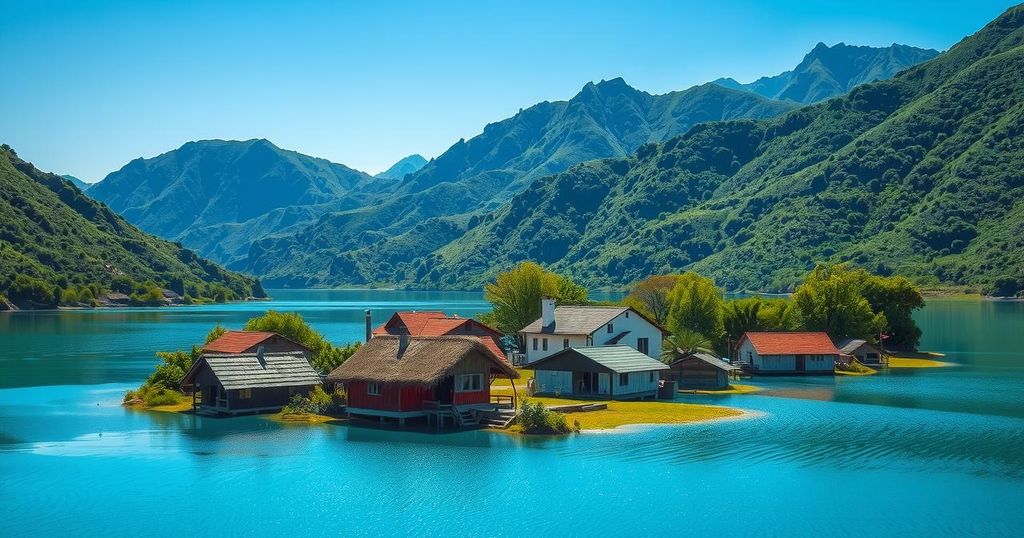Tipuani, a Bolivian village, suffers severe flooding due to intense rainfall and destructive gold mining practices, with about 500 homes submerged. The mining industry, crucial for residents’ livelihoods, contributes to environmental instability, prompting dire consequences for the community. Local residents have expressed despair over the situation, highlighting the significant impact of both climate change and mining on their lives.
The Bolivian village of Tipuani faces severe flooding, with around 500 homes submerged due to a combination of intense rains and destructive gold mining practices. Residents navigate flooded streets on makeshift rafts, as the region, dependent on mining, suffers significant environmental consequences. Rafael Quispe, a local miner, lamented the transformation of his once-beautiful town into a disaster, a sentiment echoed across the affected community.
Tipuani is accustomed to floods, yet recent years have seen increased rainfall during the rainy season, which generally spans from November to April. Experts attribute the severe flooding not only to climate change but also to destructive mining practices that have destabilized riverbanks. Mining cooperatives have escalated activities in the region, leading to alterations in the river’s flow that exacerbate flooding.
Former miner Sinforiano Checa, now living in a tent, condemned the actions of mining companies, expressing the detrimental effects of their waste dumping into the river. Rolando Vargas, president of a local mining cooperative, acknowledged the historical negligence towards the environment and felt a sense of guilt regarding the local crisis. His situation took a tragic turn recently, as he was reported missing amid the floods.
In nearby Chima, children play in contaminated water near their homes and an inaccessible school. Despite these hardships, local resident Manuel Barahona stressed the importance of continuing work for survival, highlighting the dire economic reality faced by the community. This region, among the poorest in Latin America, is further confronted by the escalating impacts of climate change as underscored by various reports.
Bolivia ranks among the countries most vulnerable to climate impacts, as documented by the 2021 Global Climate Risk Index. The intensity of rainfall in January has reached alarming levels, marking the highest since 2012, contrary to typical patterns associated with the La Nina weather phenomenon. Changes in vegetation from forest fires have also altered rainfall patterns, intensifying the water vulnerabilities for this struggling nation.
The flooding in Tipuani is primarily driven by both climate change and environmentally harmful gold mining practices, significantly affecting the local community. As the region continues to grapple with these dual challenges, the resilience and survival strategies of its residents highlight a complex interplay of economic dependence on mining and the urgent need for environmental stewardship. Without critical interventions, the future of Tipuani remains precarious.
Original Source: www.france24.com




